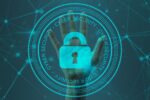
Social Boost, a Ukrainian tech company, and its 1991 Accelerator are launching the 1991 Hackathon: Media, a free event focused on identifying digital solutions to counter disinformation, analyze data for media, and develop cyber hygiene. The event will take place Jan. 20-22 at the Google Campus in Warsaw, Poland and online.
The winning projects of the 1991 Hackathon: Media will receive professional mentorship support for one month after the event with the support of international donors, tech corporations, and governments.
This support includes access to the 1991 network of startups, investors, and experts, individual meetings and consultations, and tech support. Moreover, the best teams will have the opportunity to work with leading specialists in the field and receive perks from tech partners.
The most damaging forms of disinformation that the hackathon aims to target are false or fabricated news stories that deceive the public and shape opinion, false or manipulated images and videos, and deepfake videos created by AI.
“These forms are the most relevant for our country at the moment as we’re dealing with the most powerful propaganda machine since WWII. Russia’s full-scale invasion of Ukraine violated the state and the country’s informational borders, drilling through the national and global media landscape with aggressive propaganda weapons,” Denys Gursky, co-founder at SocialBoost, told SD Times. SocialBoost creates the synergy between the startup community, business and the public sector to implement innovative solutions and make quality breakthroughs in the economy. “Our event is a great international opportunity open to CSOs, tech companies, startups, governments, and media professionals.”
Hackathon participants are invited to solve challenges in the following areas:
- Algorithms and Automation Tools
- Real-Time News and Data Monitoring
- User Education
- Strategic Communications
- Open Data and Transparency
- Big Tech and Responsible Advertising
After the first checkpoints and semifinals, the best ten teams will go to the finals, where the projects will be judged based on relevance, presentation quality, implementation of the idea, and business model sustainability.
The final three winners will receive mentorship from the 1991 Accelerator, which will last for one month. The winners can count on the support with the idea implementation from the government and private sector and working on these projects with leading specialists in the fields, according to Gursky.
“Ukraine has effectively become the disinformation battlefield. There’s a lot of support Ukraine is getting from the rest of the world, and now there’s a lot that Ukraine can tell the world about the experiences it had recently which will be useful to know for EU countries too,” Gursky explained. “Also, many Ukrainians now reside in the European Union and specifically Poland. For the hackathon, we invite tech-savvy Ukrainians and residents of European countries to come together and join the hackathon to share their experiences, contribute to resolving global information security challenges and cooperate with leading government, market, and civil society experts and professionals.”
In addition, the launch of the European Ukrainian Digital Network, which aims to unite tech professionals and Ukrainians living in the European Union, will be announced at the hackathon.






